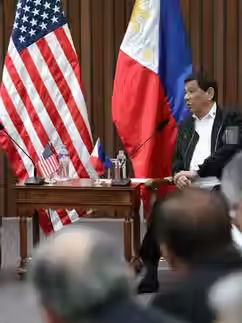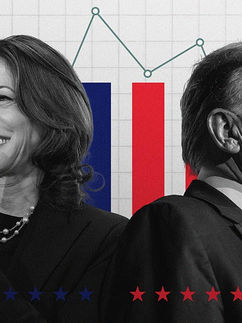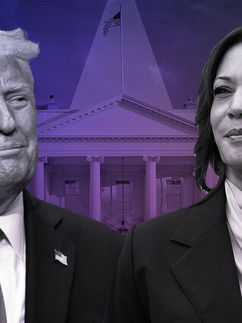The Myth of the Olympics’ Political Neutrality
- Young Diplomats Society
- Jul 22, 2024
- 5 min read
Elizabeth Lawler

The claim that we should keep politics out of sport is not one that will be unfamiliar to most, and often rests upon the idea that political action in sport is a relatively new phenomenon. However, particularly when it comes to competitions like the Olympic Games, the politics have always been there. Despite this, the International Olympic Committee (the IOC) lists political neutrality as a key value in its charter, which outlines the IOC’s pursuit of peace through sport.
Regardless of whether or not the IOC claims political neutrality, though, the Olympics themselves are inherently political. They are cultural events moulded by the political zeitgeist of their time, and to approach their management from inside a politically sterile bubble is unrealistic. Moreover, such a powerful entity attempting to conduct itself in a way that is uncritically neutral has the potential to cause harm, and acts as a political statement in and of itself.
The sporting arena as a political arena
The idea that the IOC should be neutral ignores the inherent politics of the Olympics. Any event which brings nations together is likely to result in displays of both camaraderie and animosity. The Olympics are no exception, and the event has had a long political history. Since their inception, the modern Olympics have been an opportunity for nations to show their strength, with athletes as representatives of their respective states. While this generally manifests as healthy competition, the event has on many occasions acted as a proxy battleground for states at odds with each other.
The Olympics’ political nature often manifests even before the games begin, through rhetoric or through action. During the Cold War, for example, media outlets characterised the games as a competition between communist countries and non-communist countries, laying the foundations for these events to act as an opportunity for nationalistic conflict. As well as this, several Olympics have been boycotted by states as a form of protest. These protests are often against issues that would otherwise be unrelated to the games – such as the Israeli invasion of the Sinai Peninsula and the Soviet invasions of Hungary and Afghanistan – thus demonstrating the known political significance of the Olympics.
Further, Olympic events themselves are often fraught with political tension. Even if we put aside acts of overtly political protest or demonstration, there have been numerous instances of this tension manifesting during events. A particularly salient example of this comes from the Melbourne 1956 Olympics. These games took place amidst significant global instability, having already been boycotted by multiple countries, and began less than a month after the aforementioned Soviet invasion of Hungary – an operation which ultimately brought about a ‘brutal end’ to the Hungarian Revolution. One of the defining moments of these Olympics was a water polo match between Hungary and the USSR, during which tension between the teams manifested as overt violence. The match is commonly referred to as the ‘Blood in the Water’ match due to an iconic image of Hungarian player Ervin Zádor leaving the pool with blood pouring from his face, having been punched by Soviet player Valentin Prokopov. The match ended in a Hungarian victory, being stopped early to avoid a spectator riot. In this case, it is clear that conflict was not about the match itself; many of the taunts and insults thrown between the teams related explicitly to the conflict. For the Hungarians, it was a chance to promote pride for their country in the wake of the Soviet invasion, and to achieve a victory over the nation which had forced them from their homeland. In the words of Zádor himself: ‘We felt we were playing not just for ourselves but for our whole country.’
The inherent politics of the Olympics, as well as the external political value that is applied to them, cause the IOC’s commitment to neutrality to feel somewhat disconnected. In relation to such a significant international event, the IOC’s desire to be apolitical ultimately creates a feeling of dissonance between its ideals and the reality of the Olympics.
Politically neutral, or politically blind?
Even if we accept political neutrality as a realistic goal for the IOC, it can be argued that the commitment to neutrality is a political act in and of itself; specifically, it is a commitment to the status quo. The IOC’s neutrality indirectly condones the actions of states which defy international laws and conventions, or at least indicates that they will still be afforded a platform regardless of their transgressions.
Given the financial burden of hosting the Olympics, the event is ultimately an opportunity to bolster the host nation’s image. Considering this, it is not surprising that many have been critical of the IOC’s decisions to award hosting rights to countries who go against international law. A relatively recent example of this was the international response to the IOC’s decision to allow Beijing to host the 2022 Winter Olympics amidst allegations of human rights abuses. The irony of the IOC’s apolitical ideal has been unintentionally highlighted by IOC president Thomas Bach, who asserted that “sport can only contribute to the development of peace if it’s not used as a stage for political dissent.” This statement was given in response to an earlier wave of backlash from the international community in response to the 2014 Winter Olympics being held in Sochi, despite Russia’s introduction of major anti-LGBTQ laws in addition to existing allegations of human rights abuses.
Peace between nations is rarely possible without internal stability, and internal stability is not possible in any state where human rights abuses are being committed. It then stands to reason that by ignoring such issues to maintain neutrality, the IOC is doing very little to move towards its ideals of peace and unity. The IOC’s status as a UN observer only adds to the irresponsibility of its blind neutrality in the pursuit of its ideals. In relation to an event as global as the Olympics, the IOC’s commitment to neutrality is the political equivalent of closing your eyes and pretending something doesn’t exist: unrealistic at best and harmful at worst.
Despite political neutrality being one of the primary ideals of the IOC, it is impossible to separate the Olympics and politics, and the banning of protests and other forms of political demonstration ultimately does little to negate these inherent politics. Geopolitics are, after all, a competition; it therefore makes sense that an Olympic win may also be viewed as a political win. This is unlikely to change, particularly as global tensions continue to rise. In an ideal world, political neutrality would be a reasonable pathway to peace, but the world we are living in is far from ideal. If the IOC truly hopes to promote peace through sport, it may be better served upholding internationally recognised principles of peace, rather than pretending that neutrality is anything more than a blindfold.
Elizabeth Lawler is a graduate of the ANU, holding a Bachelor of International Security Studies and a Bachelor of Asia-Pacific Affairs. She has a keen interest in peace studies and nuclear politics, with a particular focus on nuclear non-proliferation and disarmament. She is currently studying a Master of Arts (Writing and Literature) at Deakin.

















Comments